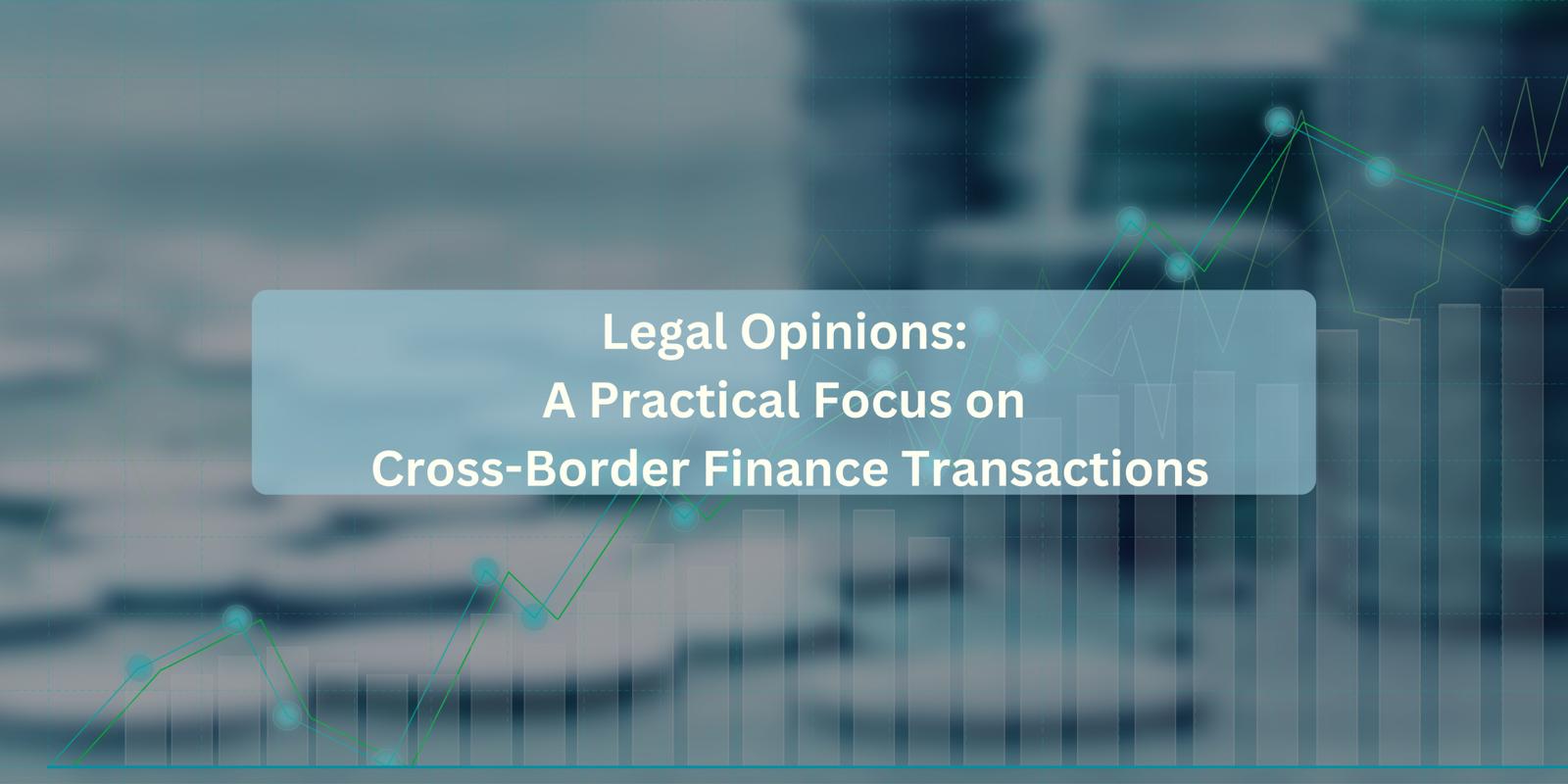Legal Opinions: A Practical Focus on Cross-Border Finance Transactions
General Definition
A legal opinion, or opinion letter, is a letter drawn up and issued by a law firm providing a legal analysis or expressing its professional judgment on legal issues pertaining to a particular matter, which is issued for the sole benefit and reliance of the recipient of the letter.
Finance Transaction considerations
Amongst other areas of law, the issuance of a legal opinion is particularly common in the context of cross-border loan and security transactions, wherein it is predominantly requested by the lender group, whose main concern is to understand its rights and obligations in granting the loan, and the course of action it is entitled to take, in the event that this cannot be repaid by the borrower.
In view of the legal liability, risk and implications attached to the granting of a loan, it is in the interest of the lender to confirm and ensure the accuracy of the finance and security document/s to which it is intended to become a party, as well as the perfection formalities of the type of security to be taken thereunder.
Security may take various forms, including a pledge over shares or bank account/s, a corporate guarantee, security by title transfer, amongst various others. It is not, however, the scope of this discussion to delve into the different kinds of security that may be granted. What is relevant to note is that the security package generally negotiated between the parties to a facility agreement in cross-border transactions, typically creates an obligation not merely on the borrower but also on its related entities globally, the latter of which are oftentimes compelled, qua obligors, to guarantee, by way of security, the obligations of the borrower in relation to the relevant loan.
In effect, and particularly in transactions involving large credit facilities or loan syndications, the issuance of an opinion letter is typically included in the relevant facility documentation as a condition precedent to the very advancement of the loan or the completion of the transaction. Moreover, an opinion letter is often requested to be issued in respect of every jurisdiction to which the borrower and obligors are subject.
Form and Content
While form may vary, there are, generally, five key components that may be said to characterise an opinion letter, namely:
i. Scope: the facts and background of the transaction;
ii. Documents: the documents examined and covered by the opinion;
iii. Assumptions: the assumptions relied upon by the issuer in relation to the opinions expressed. These would concern factual matters which the issuer cannot reasonably verify itself, for e.g. the assumption that the relevant transaction documents have been entered into by all of the parties in good faith.
iv. Qualifications: any applicable qualifications and/or limitations and/or exceptions to the opinions expressed. These would concern, inter alia, certain points of law that cannot be derogated from or on which the issuer cannot reasonably provide absolute assurance, for e.g., a qualification to the effect that there is no doctrine of judicial precedent in Malta, and that therefore, the Courts of Malta will not necessarily follow and uphold a previous interpretation of the law by another Court; and
v. Opinions: the specific legal opinions/conclusions formed by the issuer on the basis of the documents examined and covered by the opinion letter, which provide an interpretive study of the legality and potential risks concerning the relevant subject matter. This section constitutes the crux of the opinion letter.
Substance
The substantive matters that a legal opinion, which is issued in the context of a finance transaction, seeks to address, primarily relate to the capacity and authority of the borrower and/or obligor/s (as applicable) to enter into the loan and/or security documents, and the legal effect of the entry into such documents, and it is one of two kinds of opinions that is generally sought by the lender group in this regard – a “capacity-only” opinion or an “enforceability” opinion.
Broken down briefly, a capacity-only legal opinion serves to confirm (or otherwise) that the borrower or the obligor/s (as applicable) to the transaction documents are validly constituted under the laws of their registration, that the said parties have the necessary capacity, power and authority to conclude and perform their obligations under the transaction documents, and that the transaction documents covered by the opinion have been validly authorized, entered into, and executed by the said parties thereto.
An enforceability opinion, on the other hand, is more onerous and imposes a greater degree of liability on the part of the issuer, in that it provides additional, and more substantive, opinions on, inter alia, the validity of the obligations undertaken, the choice of law of the transaction documents, and the recognition and enforceability (or otherwise) of such documents in a court of law, against the borrower and/or obligor/s, in the event of a default.
In practise, it is the enforceability opinion letter that is most commonly sought in corporate finance dealings, and this in view of its robust and comprehensive nature.
Drafting Considerations
Like any transaction document, the drafting of a legal opinion by one party (typically being counsel to lender, albeit not always) is subject to the review and comments of the counterparty, and in practice, therefore, the legal counsels representing the lender and the borrower will essentially work on the opinion directly with each other.
Albeit quite lengthy, the assumptions and qualifications stipulated in an opinion letter are generally standard and uncontroversial, and do not often give rise to disagreement and/or negotiation between the lender and the borrower. Negotiation between the parties more commonly arises with respect to the type and extent of the opinions proposed to be expressed therein.
Concluding Thoughts
The value of a legal opinion cannot be disputed within the context of cross-border finance. This is not to say, however, that it should be used as a substitute for legal support and advice on any particular transaction. It is to be considered, rather as a risk-management tool in the hands of the lender, which serves to provide an added layer of assurance that the provisions of the documents to which the lender shall become a party, are valid and binding and would not cause any undue obstacle to the enforcement of the said documents, under the applicable laws, should the borrower fail to re-pay the loan.
Sarah Grima
Senior Associate within the Corporate and Commercial Department of Fenech & Fenech Advocates







